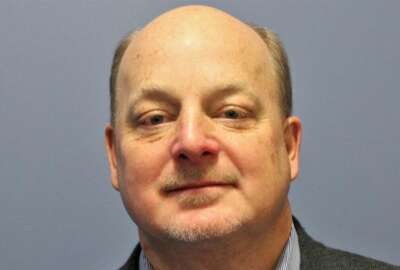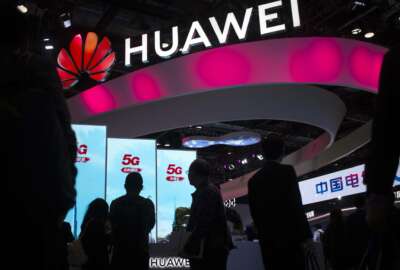
Preventing fraud during times of desperate need
The government's antenna are quivering, at collusion and price fixing. They're attached to a big bug called the Procurement Collusion Task Force.
Best listening experience is on Chrome, Firefox or Safari. Subscribe to Federal Drive’s daily audio interviews on Apple Podcasts or PodcastOne.
There are times when the government’s acquisition workforce seems to act in desperation. 9/11. Hurricane Katrina. The coronavirus pandemic. It leads to fast buys and sole source buys. But the government’s antenna are also quivering, attuned to the possibility of collusion and price fixing. They’re attached to a big bug called the Procurement Collusion Strike Force. For more, Federal Drive with Tom Temin turned to attorney and Baker Hostetler partner Jeffery Martino.
Interview transcript:
Tom Temin: So tell us about the Procurement Collusion Task Force. This is something new on the scene?
Jeffery Martino: Yes, it’s actually the Procurement Collusion Strikeforce, and I can probably tell you the difference between strike forces and task forces as we discuss a little bit further. It’s something I’ve been monitoring since coming over to Baker Hostetler last fall from the Department of Justice. I was chief of the New York Office of the Antitrust Division. Along with my colleagues at FTI, Nicole Wells and Regis Arnone, we’ve been following the developments. This strike force kicked off in November of 2019. DOJ announced it formed a Government Procurement Collusion Strikeforce that comprises of prosecutors from DOJ, Antitrust, as well as 13 United States Attorney’s offices around the country. Some of those include New York, Washington, DC, Chicago, Ohio, Los Angeles and other key markets. The Strikeforce partners with the FBI and inspectors general from the Department of Defense, US Postal Service, GSA — and the mission of the Strikeforce is to deter, detect and prosecute antitrust crimes and related schemes in government procurements, in order to ensure taxpayers receive the full benefits of competitive bidding. So in government contracting, antitrust violations increase costs borne by the government and directly impact taxpayer. So for example, rigging bids and allocating market shares during the procurement process inevitably causes a rise in the prices offered to the government. So in turn, the taxpayer suffers. In this past year it was projected that contract spending could be over $600 billion, that’s billion with a B. DOJ has said that more than 50 federal, state and local agencies have sought the assistance of the Strikeforce and has trained more than 2000 investigators, some data scientists, as well as procurement officials, in assisting them in trying to uncover bid rigging and fraud in procurement process.
Tom Temin: Well, how can contractors rig bids in what is, even though it’s online, and we don’t have literally sealed paper coming in anymore, but it’s still basically a sealed bid system. Even though it’s electronic. How can they and how often do they do this? Is there evidence this ever happens?
Jeffery Martino: Since the Strikeforce was first announced, DOJ already had more than 30 open grand jury investigations concerning public procurement. Certainly after disasters, financial crisis, in desperate times, there’s a call for desperate measures among contractors and folks in other markets. Just in June DOJ also announced that there have been several more investigations that have been open pacifically under the Strikeforce.
Tom Temin: What is it that they look for? What are the clues to the government that there’s collusion going on when all bids come in at the same dollar amount, or something else?
Jeffery Martino: I think there’s some factors that they look at. Certainly well, price fixing, bid rigging can occur in almost any industry, they’re likely to occur in industries where only a few firms compete. The public procurement industry features certain characteristics that make it probably more susceptible to antitrust violations. And certainly these contracts are lucrative and numerous. Where there’s fewer sellers, it’s easier for them to coordinate one because they may know each other from past work together as subcontractors. But there’s probably a more coziness to the industry. For the government it’s difficult to monitor government contractors consistently across the board because you’ve got, even at the federal contract, it might be seeking local contractors in various geographic markets around the country. So it’s really hard to capture all the information and data to fiind these secret agreements. Certainly during disasters that governments need. For services outweigh its ability to really buckle down and check all the boxes in order to prevent this. So contractors can take advantage and rig bids. By by rigging bids necessarily you’re going to be able to raise prices., and certainly this is something that can happen in times of need, like during the pandemic.
Tom Temin: Are there particular segments where this is more likely to occur, this illegal behavior, say in defense contracting professional services, selling hardware and products, maybe some of the low end types of services like painting and landscaping and building maintenance?
Jeffery Martino: All of those that you mentioned, it’s probably except for the Department of Defense, can happen at one federal project. From the restoration, remediation. Let’s say if you’re talking about environmental services project. All those services can be found at one federally designated site that need to be attended to. While I was at DOJ, we saw and prosecuted government contracting cases in almost every industry, from it to defense, to technology even.
Tom Temin: Wow. What are the penalties for contractors caught and convicted of this?
Jeffery Martino: The penalties, and certainly this is a priority of the antitrust division at DOJ — for individuals, it’s up to 10 years in jail and a million dollar fine.
Tom Temin: Yeah, so it’s pretty serious consequences. Now, earlier on, I call this mistakenly a task force and you corrected me that it’s a strike force. What is the difference between the task force and the strike force where DOJ is concerned?
Jeffery Martino: I think that has changed over the years. But I think one model that you can look at is the Health Care Fraud Strike Force, where you’ve got teams set up in particular geographic markets that focus on bringing the cases, investigating the cases. Task forces and working groups typically identify areas of priority and gather up the resources and really strategize on how best to approach it. Strike forces have teams on the ground, working with other components and their partners to bring those cases themselves.
Tom Temin: Who usually brings the possibility of collusion or price fixing to the strike forces or the department’s attention? Is it whistleblowers, contracting officers? How do they usually come in?
Jeffery Martino: It can come in from various sources. Certainly whistleblowers, competitors complaints, as well as the Department of Justice Antitrust Division has a leniency program where the first company to report the violation and fully cooperate with the department can get basically a non prosecution agreement, so long as they pay restitution. That really helps them avoid criminal prosecution. So they may not be disbarred and then it limits their civil damages, and they may also get protection for their key executives who are current employees. In fact, if former employees are quiet, they also may be included in that leinancy program.
Tom Temin: How has the pandemic in all of the procurement related there too, has that heightened the possibility of price fixing in collusion?
Jeffery Martino: Well, it certainly with all the government contracts that are being led out in the tenders, it’s an area of concern. As I mentioned before, several investigations have been opened up since the pandemic. I don’t know whether those are specific pandemic related. But certainly, I think with the hype around the Strikeforce, the resources it’s gathered and the publicity that it’s maintained for the last six or seven months now, they’ve been able to garner a lot of support. I imagine that they’re getting a lot of reports from whistleblowers and perhaps leniency applicants, even if it doesn’t directly relate to the pandemic.
Tom Temin: If a company wants to avoid this, I mean this could happen at below the executive suite level, just among say the business development and sales people maybe — what are some of the basic compliance and controls mechanisms a company should make sure it has?
Jeffery Martino: I think contractors need to start with assessing whether they have an antitrust compliance program. A lot of them have corruption programs and ethics programs, but don’t deal specifically with antitrust complaints. Last summer, DOJ Antitrust Division published guidance on how it will evaluate compliance programs if contractors are caught colluding and facing charges. So what they’ll evaluate is several areas. First, how comprehensive the program is, the compliance culture of the contractors, executives. So it’s not just the business development people, but it’s really the tone at the top, going to the middle and holding folks accountable. They’re going to want to identify who’s responsible person for the antitrust compliance program, and whether and how the contractor assess those risks. What was the procedures that they did? Obviously, training is a major component. Then they’re going to want to see that there’s continuous auditing in high risk areas. Finally, an area that we’ll be evaluating is how compliance is incentivized and how the company, the contractor, will discipline any wrongdoers in the company. Specifically, I think there’s internal controls that can be put in place that can mitigate the risk. Certainly policies and procedures should be put in place to segregate duties in preparation, review and approval proposals. Justs by creating consistent standards for estimating and budgeting, those two simple steps can really help further the antitrust compliance program.
Tom Temin: As a career federal prosecutor, are you now defending companies and what does that feel like?
Jeffery Martino: Yeah, I am defending companies, and you’re doing a lot of the same work. You’re talking about antitrust compliance. You’re looking and evaluating whether it makes sense for the company to go in and seek leniency. These are high stakes investigations, and you want to make sure that the government is doing the right thing. That was my job as chief of the New York Office of the Aantitrust Division and representing companies and individuals. I take the same approach in how can we mitigate the risks and first person problem, and then if we need to deal with the problem, addressing it appropriately and making sure that the compliance program is the program that the company buys into, not just those particular areas that may be concerned, but it really needs to come from the top.
Copyright © 2025 Federal News Network. All rights reserved. This website is not intended for users located within the European Economic Area.
Tom Temin is host of the Federal Drive and has been providing insight on federal technology and management issues for more than 30 years.
Follow @tteminWFED
Related Stories

Ban on Chinese products starts today despite confusion over acquisition rule




